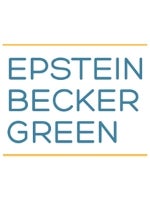The Department of Labor (“DOL”) previously announced the applicability date for the DOL’s fiduciary rule (the “Fiduciary Rule”) will be June 9, 2017. On May 22, 2017, in an opinion piece for the Wall Street Journal, Labor Secretary Alexander Acosta disclosed that, despite the Administration’s agenda of deregulation, the regulators are required to following existing law and must enforce the Fiduciary Rule. On the same date, the DOL announced, in Field Assistance Bulletin 2017-02 (“FAB 2017-2”), that during a transition period from June 9, 2017 until January 1, 2018, the DOL will not pursue claims against fiduciaries who are working diligently and in good faith to comply with the Fiduciary Rule and related exemptions or treat those fiduciaries as being in violation of the Fiduciary Rule and related exemptions. The DOL explained that its general approach to implementation will emphasize assisting plans, plan fiduciaries, and financial institutions with compliance, rather than citing violations and imposing penalties on these parties.
Under FAB 2017-2, during the transition period, financial institutions and advisors are still required to comply with the “impartial conduct standards” in dealing with consumers, which require advisors to follow fiduciary norms and basic standards of fair dealing, which is described in more detail here.
The DOL further stated in FAB 2017-2 that it may still make additional changes to the Fiduciary Rule and the related exemptions. Any such changes would be based on the DOL’s on-going analysis of the issues raised in President Trump’s February 3, 2017 memorandum related to the effect of the Fiduciary Rule on the ability of Americans to gain access to retirement information and financial advice. The DOL stated that it intends to issue a Request for Information (“RFI”) seeking additional public input on possible changes to the Fiduciary Rule and related exemptions.
In conjunction with FAB 2017-2, the DOL also issued a set of 15 FAQs that cover a variety of topics, including: implementation of the Fiduciary Rule and related exemptions during the transition period from June 9, 2017 to January 1, 2018; possible future changes to the Fiduciary Rule; robo-advice providers; communications that are not subject to the Fiduciary Rule; and the seller’s carve-out. A summary of certain of the more significant FAQs follows:
-
The phased implementation schedule applies to the Best Interest Contract Exemption (requiring customers be protected through contractual provisions that advisors will act in the best interests of the customer) and the Principal Transaction Exemption (imposing standards for advice regarding transactions between employer retirement plans and IRAs) during the transition period. Absent further action from the DOL, the transition period ends on January 1, 2018 and full compliance with all of the conditions of these exemptions will be required for financial institutions and advisers.
-
Parties subject to the Fiduciary Rule need not come into compliance until 11:59 PM local time on June 9, 2017 and will not be treated as fiduciaries under the Fiduciary Rule before then.
-
The RFI to be issued by the DOL will ask for comment on whether an additional delay in the January 1, 2018 applicability date would allow for more effective retirement investor assistance and help avoid excessive expense. The DOL notes that, by granting additional time, it may be possible for firms to create a compliance mechanism that is less costly and more effective than the interim measures that that they might otherwise use. By way of example, the DOL mentions that the possible use of “clean shares” in the mutual fund market to mitigate conflicts of interest is likely not going to be ready for implementation by January 1 2018. “Clean shares” sold by the broker would not include any form of distribution-related payment to the broker. Instead, the financial institution could set its own commission levels uniformly across the different mutual funds that advisers may recommend. As long as the compensation is reasonable, the DOL states that this approach would be an optimal means of reducing conflicts of interest with respect to mutual fund recommendations.
-
During the transition period, financial advisers subject to the BIC Exemption will satisfy its requirements by complying with the impartial conduct standards, even if the adviser recommends proprietary products or investments that generate commissions or other payments that vary with the investment recommended. The DOL, however, expects financial institutions to adopt the policies and procedures that they reasonably conclude are necessary to ensure that the advisers comply with the impartial conduct standards during the transition period.
Take-Aways
Financial advisers and institutions that provide investment advice must be in compliance with the Fiduciary Rule as of 11:59 PM on June 9, 2017. For the BIC Exemption, Principal Transaction Exemption and the prohibited transaction exemptions amended by the DOL in connection with the Fiduciary Rule, implementation will be phased, beginning on June 9, 2017 with full compliance on January 1, 2018, subject to further action by the DOL. During the transition period, financial institutions and advisors must work diligently and in good faith to comply with the impartial conduct standards of the Fiduciary Rule.




 />i
/>i
